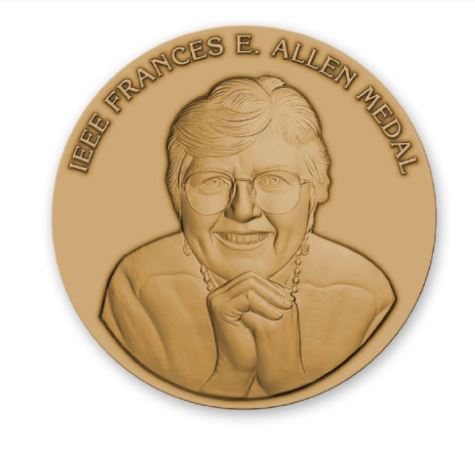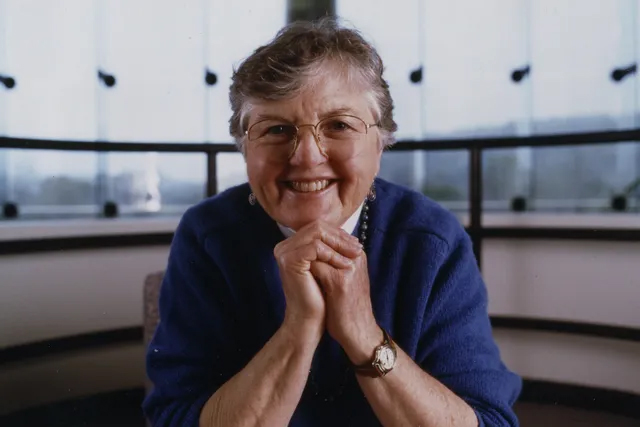The Frances E. Allen Fund for Early Childhood Education for Disadvantaged Youth at The New York Community Trust carries out the legacy of this trailblazing woman, today and tomorrow.
Frances E. Allen (1932-2020)
Frances “Fran” Elizabeth Allen, a computer scientist and researcher, specialized in early programming languages and the software programs that convert code that humans understand into binary code that machines understand. In 2006, she was the first woman to win the A.M. Turing Award, considered the Nobel Prize of computer science.
In 2020, the Institute of Electrical and Electronic Engineers—the world’s largest technical professional organization—recognized Fran’s contributions by announcing the IEEE Frances E. Allen Medal, an annual award presented for innovative work in computing.
Fran was born August 4, 1932, in Plattsburgh, New York, the oldest of John and Ruth Allen’s six children. Her father owned a dairy farm, and her mother was an elementary schoolteacher. Her early education was in a one-room country school a mile from home.
In 1954, she graduated from the New York State College for Teachers in Albany with a bachelor’s degree in mathematics. After teaching high school students for two years in Peru, New York, she enrolled at the University of Michigan and earned a master’s in math. She also took a handful of classes in the new field of computer science.

To repay her sizable student loans, she joined IBM Research in Poughkeepsie in July 1957, just three months before IBM introduced Fortran, the first high-level programming language. Fran planned to return to teaching after her debts were paid, but her first assignment at IBM was to train research division scientists in this new, relatively complex language. She ended up staying with IBM for her entire 45-year career.
In 1959, Fran was assigned to a team that designed one of the first supercomputers, the Stretch-Harvest, for the National Security Agency. The 75,000-pound machine could pick up and decipher secret communications during the Cold War using Fortran, Autocode, and Alpha, a programming language she helped develop.
Over the next four decades, Fran transferred between the research division, systems development, and the computer sciences department. “All those transfers between research and the product divisions,” she said, “helped me bridge the gap between theory and practice.”
She spent much of her career helping optimize a key component of modern computers: the compiler, the software that takes in programs written by humans and turns them into something with which computers can work. In short, compilers are a vital contribution to today’s digital world.
At first, the process was slow and cumbersome as compilers converted the programs into zeros and ones. In later years, she and her IBM colleagues designed more efficient compilers that spread the digital tasks across multiple computers, a technique called “parallel computing.”
Fran’s work plays into “pretty much every software system anyone uses: every app, every website, every video game or communications system,” said Graydon Hoare, a Canadian software engineer.
In a field dominated by men, she worked to recruit more women. Thanks largely to her efforts, women accounted for half of IBM’s experimental compiler group in the 1970s and 1980s. “She looked out for the people who were underrepresented,” said Jeanne Ferrante, one of her co-workers.
Ironically, in 1989, when Fran was named the first female IBM Fellow, an honor bestowed on the company’s leading engineers, scientists, and programmers, the company plaque identified her as a man: “In recognition and appreciation of his outstanding technical contributions…” Nevertheless, the award hung on her office wall until she retired in 2002.
Frances E. Allen died in Schenectady, New York, on August 4, 2020, her 88th birthday.
During her lifetime, Fran supported her nieces and nephews in pursuing their education. She established the fund in The New York Community Trust for early childhood education for disadvantaged youth.
